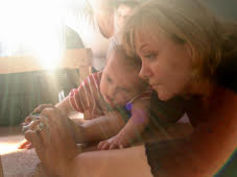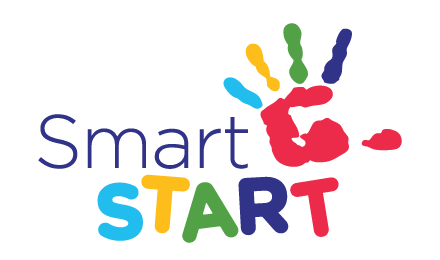Why Swedish early learning is so much better than Australia’s
Most people have heard that Finland leads the world in education, but fewer have heard that Finland’s neighbour, Sweden, is the international leader in early childhood education and care.
In 1999, when Sweden was inspected by a group of international experts appointed by the OECD, the group concluded in their report that early childhood education and care in Sweden are of high quality, and in many areas the very best. The system is called “EDUCARE”, and the name itself may hold the key to Sweden’s success.
Education and care go together in early childhood
In the picture below, taken at a Swedish preschool, you see a warm and loving interaction between a teacher and young child who are exploring the world together through a digital camera. They are both enjoying themselves and they are both learning.

Swedish EDUCARE is a way of respecting young children as full human beings. While the benefits of this system for Swedish society are certainly impressive, the success of the system rests on a firm belief in the human right of every child to be given the very best care, upbringing and education that the nation can offer.
The Swedish government and public alike consider EDUCARE essential, but it took decades of political work to become the well-established system that it is today. Historically, EDUCARE began in much the same ways that early childhood education systems began in many other countries.
The child Crèche, designed to keep poor children off the streets, and the Kindergarten, for wealthy children, merged and expanded in the 1970s and 1980s in the hope this would improve economic, social, political and educational situations in the nation.
A primary cause of the change was the fact that women wanted to be more involved in the labour force. However, when this transition occurred in Sweden, people took to the streets to fight for the right of allchildren to a good and stimulating play and learning environment, not just the children of professional women.
The first national Swedish preschool curriculum was accepted in 1998and became an essential resource for early childhood educators and policy makers worldwide.
The Swedish national preschool curriculum has no prescribed goals for individual children to reach by a certain age. Instead, it states “goals to strive for”. Assessments of EDUCARE are not “top down”, but require and value teachers’, parents’ and children’s opinions and experiences.
What are the benefits of this system?
This results in a space for every Swedish child in a preschool that is:
- accessible
- high quality
- staffed by teachers with a 3.5-year university education and by educated assistant teachers
- shaped by respect for each child as a competent person in his or her own right, not just a receptacle for knowledge but a contributor and a creator
- in possession of high-quality material conditions: Swedish preschools are remarkably well designed and appointed.
Today 83% of Swedish children aged one to six are in preschool, and 95% of three to six year olds are in preschool. Children start school at the age of seven, as their first year outside of the preschool is in a preschool class that is housed either in a preschool or within a school and is designed especially for children aged six to seven.
Almost all (99%) Swedish children attend high-quality leisure centres during non-school hours. These centres, like the preschools, are open from 6.30am-6pm year round. The preschool fee is 2-3% of a family’s income, before tax, for the first child, and then less for each child after that, with a maximum fee for the first child of 139 EUR a month, for the second child of 93 EUR a month, and for the third child of 47 EUR a month. Fourth children and beyond attend preschool for free.
International studies have consistently shown that a high-quality preschool experience has a myriad of short-term and long-term positive effects for children, particularly for children with special needs.
Wider economic benefits have also been proven. Research evidenceshows that when children have access to quality early childhood education they can expect better school success, a decreased crime rate, less substance abuse and increased long-term employment – all positives for the economy.
If not out of consideration for the human rights of children, then out of consideration for the many economic benefits of a good childcare system and the future benefits for children and families, all countries should strive for reform of their early childhood education and care systems. Sweden can provide us with a model and vision for such reform. One of the OECD-appointed researchers of the Swedish system went so far as to say:
If I were to be a child again, I would like to be raised in Sweden.
Further reading on what Australia can learn from education overseas:
The lesson from Canada: why Australia should have fewer selective schools
